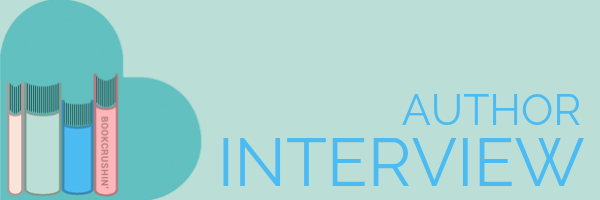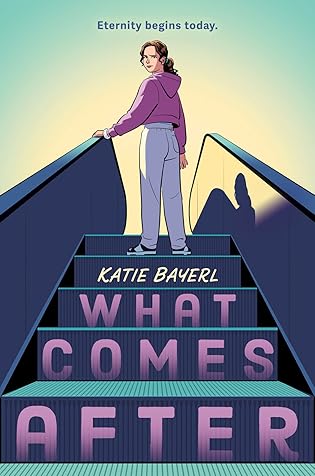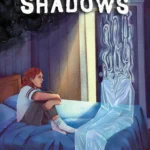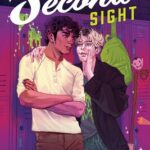
Author Interview: What Comes Next by Katie Bayerl
What if the afterlife resembled a wellness retreat, complete with journaling, “Youga™,” and a ticking clock to resolve unfinished business? In Katie Bayerl’s latest YA novel, What Comes After, sixteen-year-old Mari Novak finds herself navigating Paradise Gate, a surreal postmortem realm where self-improvement is mandatory, and forgiveness isn’t optional. We sat down with Katie to delve into the inspirations behind this unique afterlife narrative, exploring how personal experiences and cultural critiques shaped the world of Paradise Gate. Check out our interview below and pick up What Comes Next, out now!

What Comes After
by Katie BayerlPublished by: Penguin Random House Nancy Paulsen Books
on April 29, 2025
Bookshop
Goodreads
In this darkly comical, heartfelt novel, a cynical sixteen-year-old girl has only ninety days to remember how she died and finally make peace with her mother to escape spending eternity adrift in a vast nothingness. For fans of Adam Silvera and The Good Place.
No one could be more disappointed about Mari’s sudden death than Mari, herself. And if she ever thought about the afterlife, she certainly didn’t think it would be a suburban enclave called Paradise Gate or that the biggest problem to plague her in life would follow her into the great beyond: her recently deceased mother, Faye. But that is exactly who greets her when Mari opens her eyes in the In Between—where the newly dead with no religious affiliation come to work out the unfinished business of their lives so they can ascend to whatever’s next.
Mari realizes quickly Faye is her unfinished business and in order to ascend and join her loving grandparents, she’ll have to make peace with and forgive her dysfunctional mother for being no mother at all But there’s too much to forgive: never holding down a steady job, never having a stable home, Mari having to constantly change schools and in the end, Faye choosing her criminal boyfriend over Mari.
It's a lot to sort through, but Mari tries to keep her eye on the ball—attending classes at the Center like Youga and sending grief scarves sailing in Expressive Arts to move her vibe tracker from an angry unsettled red to an ascend-worthy green—all the while trying to remember how she died and deal with Faye, who, of course, is in danger of being kicked out of Paradise Gate altogether. But then Mari discovers in addition to mother drama, there’s even friend drama and boy drama to be found in the afterlife and none are good for her vibes. Even worse is the suspicion that Paradise Gate isn’t at all what it purports to be...and revolution may be afoot.
Interview with Katie Bayerl
Paradise Gate isn’t exactly your typical afterlife, there are self-help classes, journaling, and even “Youga.” What made you want to mix wellness culture with the afterlife, and how did you come up with all the quirky details of this world?
This was the fun part! I had plenty of material to draw from my own experience and from the online “wellness” garbage that clogs everyone’s feed these days.
First, I should say that I work hard to maintain my mental health. Anxiety (and its shadow sister depression) are monsters. I’m also very interested in how humans have thought about inner wellness over the centuries. I’ve explored a range of spiritual practices in my quest to understand how to live a good life, how to be a better human, what it really means to be happy, etc. I’ve consumed my share of self-help books and podcasts too.
I think some wellness practices really can make a difference. I wouldn’t function without daily writing or my regular yoga practice. (Shoutout to Baptiste Power Yoga Boston!)
But I often roll my eyes at the wellness tips I hear. Because there is a lot of bad advice out there. Or… maybe worse?… good advice that’s been watered down, stripped of context, twisted, and turned sideways by the algorithms, by this idea that happiness is something we can purchase or earn if we just spend 5 minutes a day doing [fill in the blank]. But when you have social media shouting at you to do 10 difference things (Insta currently wants me to try “face yoga”), plus your mom and aunties and guidance counselor pushing 15 other things… how do you choose? I sympathize with teens who are caught in this onslaught at a time when they also face so much pressure to perform academically, socially, athletically, and on.
Whew! I get really worked up about this topic! And I get especially mad when I think about the many teens and young adults who are legitimately struggling with mental health right now. Like, this is not an individual fix. Not entirely. The fact that nearly 60% of teen girls report persistent feelings of sadness or hopelessness isn’t because they all haven’t downloaded the right mindfulness app. We have a collective wellness problem that requires some collective and creative healing. Not to mention the work we have to do repairing the climate, culture, and systems that affect every one of us in deeper ways than we even know.
So yeah. I had plenty of material to draw on for this wacky take on the afterlife. Even though the ideas are serious, I approached the world-building playfully and hope readers will find moments to both think and laugh.
Mari’s story is so tied up with her complicated relationship with her mom. What made you want to dive into the whole forgiveness thing between a mother and daughter, especially in a place like Paradise Gate? Do you think the afterlife setting changes how their story plays out?
The afterlife setting adds pressure (and a ticking clock) to a relationship that was already fraught. In Paradise Gate, Mari and her mom Faye have 90 days to forgive one another… or else.
But letting go of difficult feelings toward a loved one—whether it’s a parent, a sibling, a romantic partner, or friend—isn’t easy. Sometimes we don’t want to let go of the anger, resentment, etc. Sometimes we can’t love ourselves until we do.
I find parent-child relationships to be especially interesting territory for fiction. Young adult authors are typically discouraged from including parents too prominently in our stories, but I think that’s a mistake. Parents—the excellent ones, the terrible ones, and the ones who are simply doing their best—loom large in teens’ lives. And if you’re a teen being raised by a parent who (for whatever reason) doesn’t have the skills and capacities to nurture you the way you need, what do you do with that? How do you learn to care for yourself. How do you make peace with your imperfect parent?
In my view, this is one of the highest stakes challenges humans face: learning to accept and love our nearest and dearest. (Or, on the flip side, deciding to separate from relationships that cannot be repaired.) Paradise Gate puts a spotlight on this high-pressure family dynamic. Mari is forced to dig into feelings—right now, in the aftermath of her mysterious death—that she might have avoided for decades had she lived.
I loved the whole rebellious vibe that starts brewing in Paradise Gate. What made you want to add that twist of resistance in the afterlife? And were you inspired by anything specific when you created those rebel characters or had Mari start questioning the rules?
I owe this strand of the book to a member of my writing group. After I shared the first 100 or so drafty pages, Liz noted a rebellious undercurrent that I hadn’t noticed or intended (at least not consciously). As soon as she named it, I got excited.
I had lots of material to draw from here too. I’ve been involved in political activism in various forms since I was a teen. I’ve become even more engaged in the past 10 years. I really believe in the power that everyday people have to organize, speak truth to power, and affect our world. It’s easy to choose hopelessness—to think that the “system” is the way it is, outside our control. But the truth is that we shape our systems. Often slowly, and through a lot of hard, sometimes risky work.
As for the way the rebels in this story dress, speak, and behave: There have been a number of times when, like Mari, I’ve shown up to a meeting or protest and been like, um, what? These folks are batshit! In some cases, they probably were. Lol. In other cases, though, I can say with hindsight that it was me. I wasn’t ready to listen. I had mental blocks that made me dismiss great ideas because they weren’t coming from the spokespeople who looked or sounded how I expected them to look or sound. Or because the ideas seemed too radical.
I think some skepticism is healthy. Not every exciting idea or magnetic leader deserves our devotion. In Paradise Gate, just like real life, there are varied points of view—different ideas about what the right path looks like, whom to trust, and the true nature of the so-called Powers That Be. Mari has to pause, listen, and really dig into her own truth before she can figure out whom to believe and what role she wants to play in creating a better afterlife.






